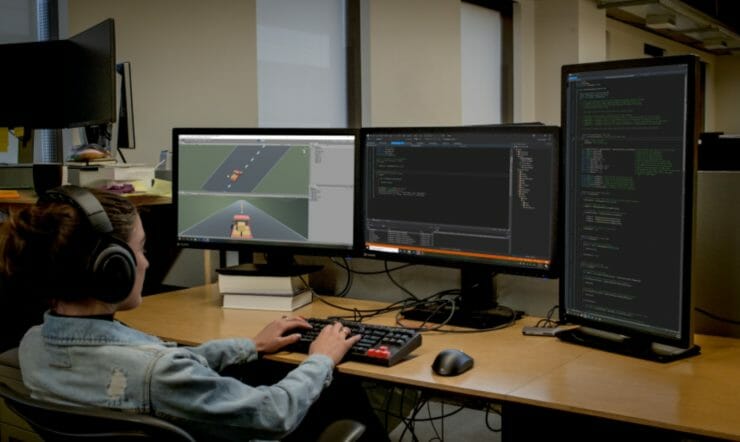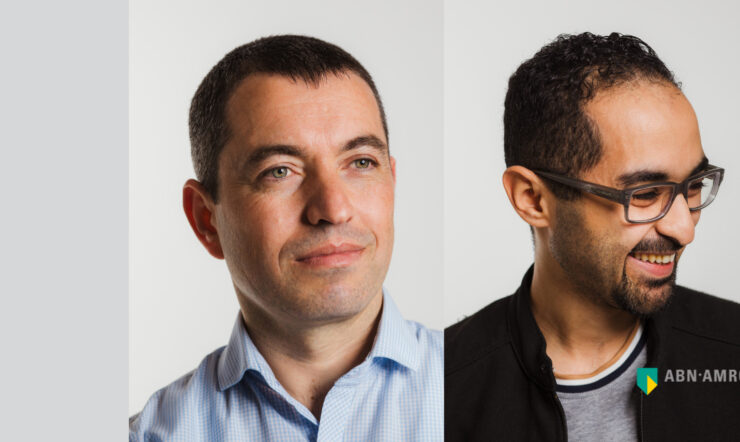A recent study ‘Wider Work Opportunities Asylum Seekers’ by SEO Economic Research points to the significant economic benefits that can be gained by giving asylum seekers broader employment opportunities. The report shows that equalizing employment opportunities to those of Ukrainian refugees would result in nearly 2 billion euros in additional welfare for Dutch society over a ten-year period. Additionally, it can help refugees in their efforts to integrate into Dutch society. But most notably, letting people who applied for asylum work can offer solutions for labor shortages. By presenting employers with access to additional talented candidates, we will be able to answer the call for a larger specialized workforce.
In 2023, more than 38,000 people applied for asylum in the Netherlands. This is a huge pool of untapped talent eager to start a new life and a career in our economy. And given our tight labor market, these workers are more than welcome. They are crucial. However, people who have applied for asylum cannot currently start working after six months upon arrival and until they have officially received a residence permit from the Dutch Immigration and Naturalization Service (IND). This process takes a very long time, is cumbersome, and is full of obstacles. These unnecessary obstacles must be removed, and I am therefore pleased that we now have the irrefutable evidence in our hands to demonstrate this and call on the Dutch government to take action.
Bridging the gap
The Netherlands has always had a strong and open economy, in which international companies play a crucial role. Several causes underlie the strength of the Dutch economy. A strong labor market with a well-educated workforce and an open culture have helped the Netherlands to be at the forefront and lead in several emerging industries. Simultaneously, demographic developments have a deep impact on Dutch society and the labor market. A key to future economic and social success lies in access to and availability of sufficient talent, skills and knowledge, and a resilient labor market where everyone has a chance to participate.
So why is an influx of talent necessary? The Dutch labor market is already facing challenges, with the last quarter of 2023 seeing an increase of 45.000 vacancies, which cannot all be filled (Business Insider Nederland). The IT sector is also struggling with a large shortage of talent, as IT-professions cover the top 5 spots for the most searched-for job titles in the Netherlands (Dutch IT Channel). In addition, employers attribute their troubles with filling vacancies to increasing digitization, leading to a need for a more digitally skilled workforce (AG Connect). As these difficulties of filling vacancies do not seem to be diminishing anytime
soon, it is more difficult to achieve our shared goals to digitize, all while being sustainably and economically responsible in our work.
Creating new opportunities
At Microsoft, we want to be part of the solution. Better yet, we want to work for it. With over 36+ years of presence in the Netherlands, we are integrated into Dutch culture. As a company we feel a responsibility to help solve our shared challenges by investing in solutions and partnerships that drive digital innovation. Our involvement in the research conducted by SEO in partnership with other employers and civil society organizations makes me very proud – it underlines our commitment to help reduce this gap in the Netherlands. And most importantly, we have a tangible solution to offer.
However, we are seeing a reluctance at companies when it comes to employing immigrants, which can be attributed to the work restrictions and the administrative hassles that currently go hand in hand with hiring such a workforce. Additionally, people who applied for asylum mainly end up with practical or lower-educated jobs (Sociaal-Economische Raad). As such, Microsoft has set up the Microsoft Azure Academy for Refugee Talents to unlock workforce potential and promote diversity within the IT sector. Microsoft, together with partners werkinhetvooruitzicht.nl and Refugee Talent Hub, offers a 12-week upskilling program for refugee talents, aiming to land in a paid IT job after completing the training in Microsoft’s partner and customer ecosystem and beyond.
Former Azure Academy participant Sergey came to the Netherlands from Armenia. After following the Azure Academy program, Sergey became a certified and employed Cloud Engineer, stating that the program “has really turned my life 180 degrees; I have a completely different life now. I am now independent again, I have colleagues and I can look ahead – plan for the future.”. And he is one of many. But Sergey also recalls the struggles of not being able to work, being held back by unnecessary barriers. The exact same barriers that we call for to be removed with the ‘Wider Work Opportunities Asylum Seekers’ research.
Win-win situation
I think that it is imperative that we provide people who applied for asylum with more work opportunities in the Netherlands. Enabling people such as Sergey to work can not only benefit Dutch society greatly but will allow equal opportunities for all. Thus, I sincerely hope that the future government will work to find solutions to the barriers that currently obstruct asylum seekers’ job opportunities. Let us work together towards a future in which everyone can unlock their true potential.
Read the Dutch version here.














